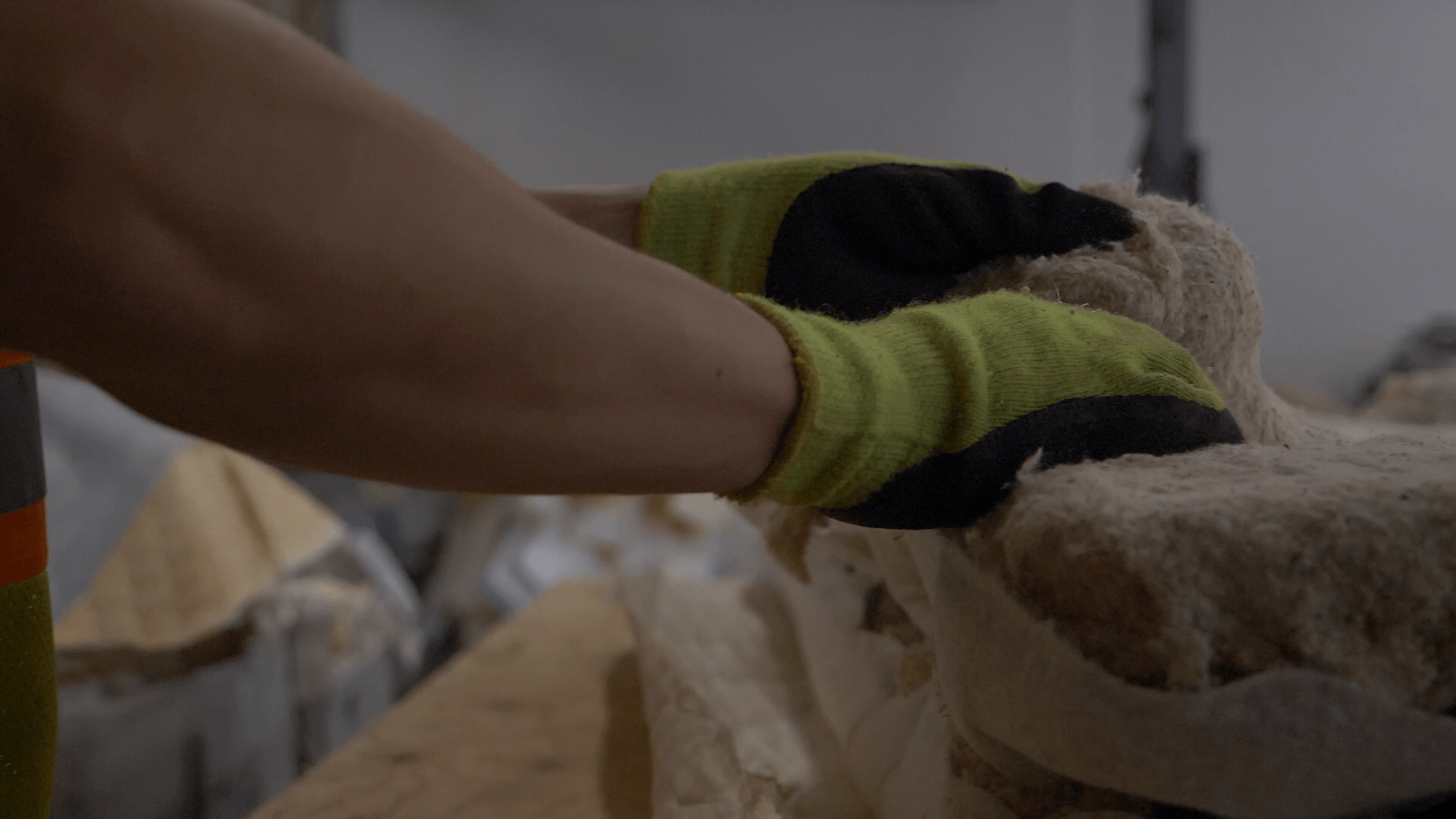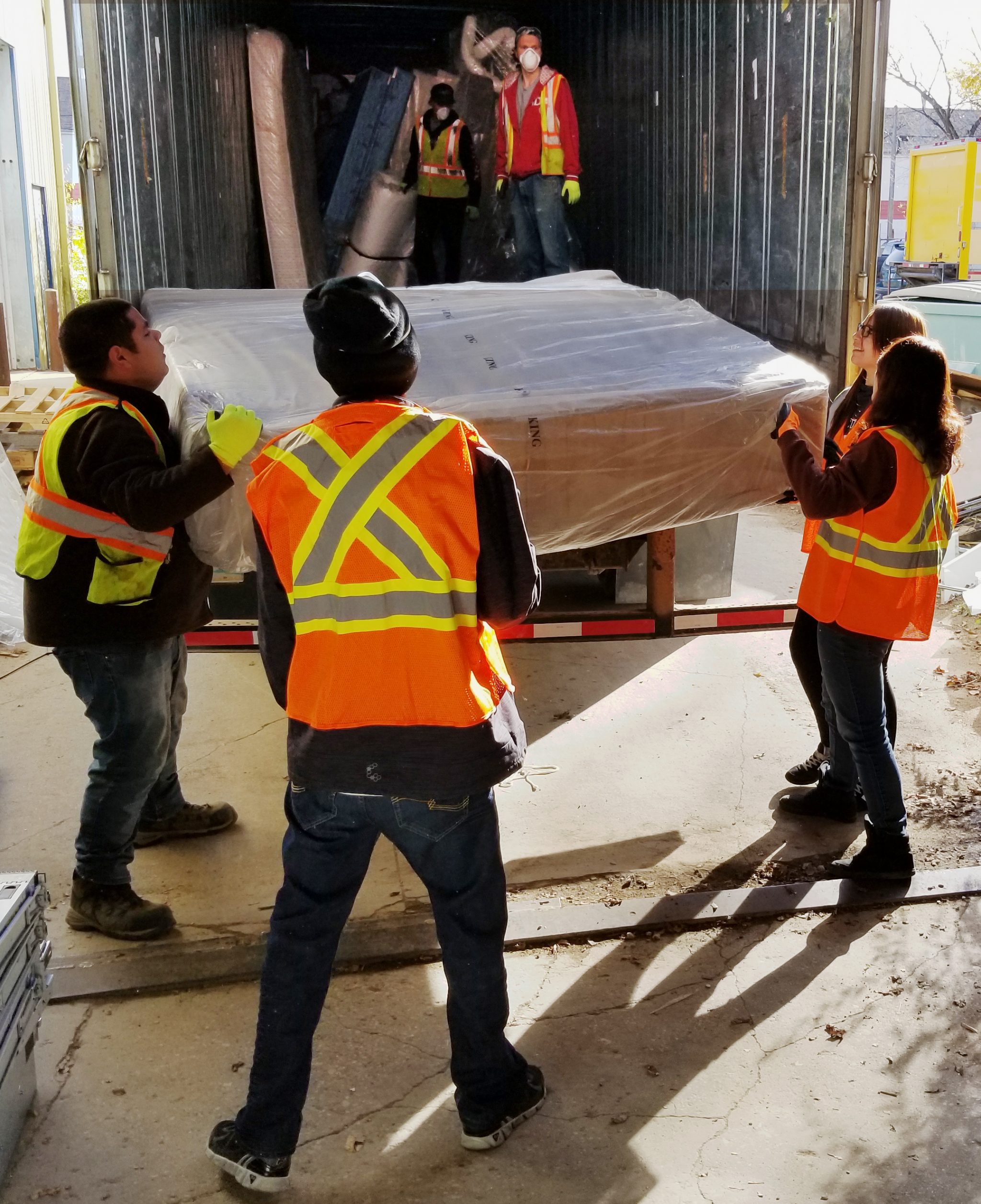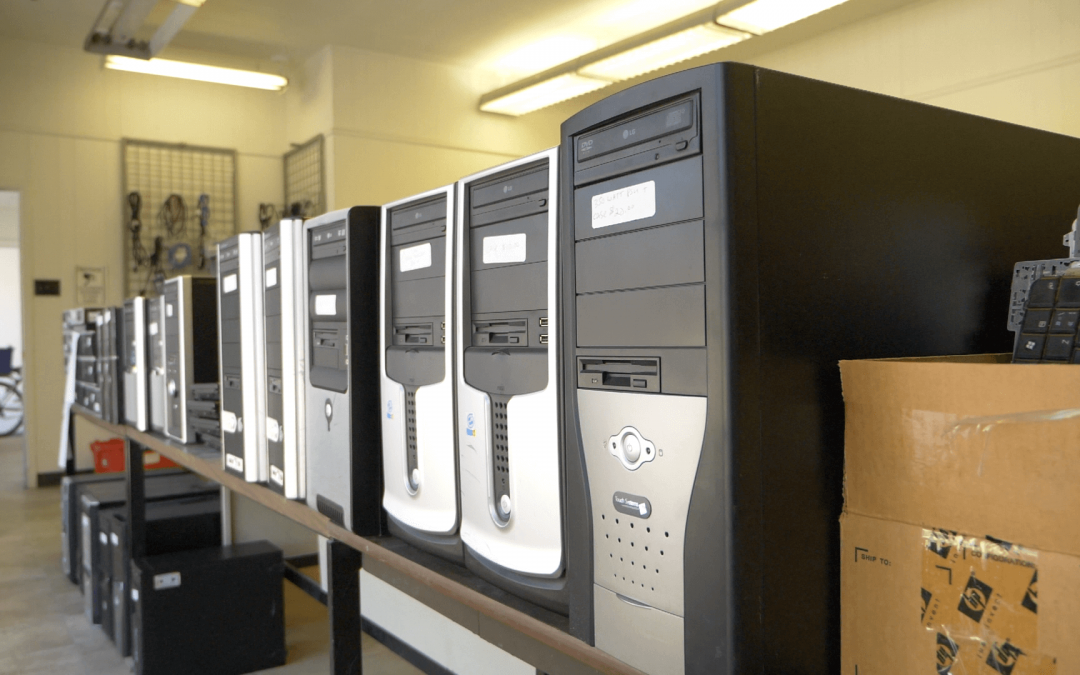Household recycling should not stop with paper and aluminum cans. Many old electronics can be recycled as well.
In preparation for Waste Reduction Week, we virtually sat down with Jessica from Mother Earth Recycling to learn a bit more about electronic recycling.
Why is recycling household electronics important?
Recycling electronics reduces the amount of material needed to be manufactured or mined for new devices, thus reducing the overall consumption of energy and natural resources. Additionally, most electronics contain toxic materials such as lead or mercury. When disposed of improperly, these toxins pose a serious threat to our water, soil, air, and wildlife.
Harvard University published an article stating “6 ways to minimize your e-waste” with some really practical solutions! Here were some that seemed most useful:
- Re-evaluate. Do you really need that extra gadget? Try finding one device with multiple functions.
- Extend the life of your electronics. Buy a case, keep your device clean, and avoid overcharging the battery.
- Buy environmentally friendly electronics. Look for products labeled Energy Star or certified by the Electronic Product Environmental Assessment Tool (EPEAT).
- Donate used electronics to social programs—[like Mother Earth!]
“[Electronic] waste could be reduced through reuse, repair, or resale. Whether it ever will be is an open question.”
(Ahmed, 2016)
As important as it is to ensure we dispose of our electronic waste properly, recycling should be a last resort; repair and refurbishment should always come first. For example, if your device’s battery is giving you trouble, it’s much more environmentally sustainable to replace the battery, rather than the device altogether. However, this may not be the most economical option, and that’s exactly the objective of these electronic companies. Columbia University came out with an interesting point in their article What Can We Do About the Growing E-waste Problem? that stated “companies intentionally plan the obsolescence of their goods by updating the design or software and discontinuing support for older models, so that now it is usually cheaper and easier to buy a new product than to repair an old one. Meanwhile, the companies continue to profit from steady sales.”
Environmental and social costs are often overlooked when it comes to E-waste disposal. Many consumers will opt for the most financially sound choice, with little knowledge about the adverse effects this has on the environment. Which is why facilities like Mother Earth Recycling are so important to help in the ongoing battle in support of overall waste reduction.

image source: Mother Earth Recycling
How Mother Earth Recycles
Mother Earth recycles computers, accessories, appliances, lightbulbs, household batteries, and more to be refurbished or recycled. All data is either physically destroyed or wiped from the system and materials are only refurbished when permitted by the original owner. Old electronics are refurbished to give them a second life, and are then made available for purchase at Mother Earth’s store, where proceeds support their Social Enterprise.
What makes Mother Earth Recycling different from other facilities?
From shareholders to staff, Mother Earth Recycling is a 100% Indigenous run organization. They provide a training program for Indigenous peoples who experience multiple barriers to employment. Through this program, Mother Earth is able to support people’s personal and professional development, provide them access to resources to have a stable home life and a place to gain useful skills when setting foot in the workforce. Approximately 20 trainees complete the program per year, some of which are hired as staff. Currently, 14 of their 20 employees are past trainees.
As a Social Enterprise, Mother Earth places the same value on environmental sustainability and social responsibility as they do on making profits. They are able to expand operations and provide more employment opportunities for Indigenous peoples by reinvesting their profits back into the organization.
Manitobans can be sure their contributions will go far through Mother Earth’s dedication to community responsibility.

image source: Mother Earth Recycling
When asked about one of the most valuable lessons Jessica has learned from her role at Mother Earth Recycling, her answer was one that many could take something from:
“I have learned so much over my years here at MER. But what I feel is most important is that I have learned about the role we all play in supporting members of our community who are often overlooked or judged. I have learned about the barriers so many people face, especially in trying to break out of the cycles of racism and poverty. Seeing how hard people work and still struggle to keep their heads above water has made me rethink pretty much everything I have known, or thought I knew. The entire system that we live under has been built to keep people in poverty and barriers are set up along the way to keep them from succeeding.”
Thank you to Jessica and Mother Earth Recycling for doing their part as an Eco Champion by doing great work to benefit our community and planet.
For more information about their services, click here, or check them out on Facebook!
Mother Earth Recycling is open for drop-offs on weekdays from 8:30 AM to 4:30 PM at 771 Main Street. In addition to electronic recycling, they also recycle mattresses, box springs, and car seats.
_____________________________________________________________________________________________________________
For more information on E-waste, see our sources:
Ahmed, Syed Faraz. (2016) https://www.theatlantic.com/technology/archive/2016/09/the-global-cost-of-electronic-waste/502019/
Cho, Renee. Columbia University. (2018) https://blogs.ei.columbia.edu/2018/08/27/growing-e-waste-problem/
Floresco, Jessica, General Manager. Mother Earth Recycling. the virtual interview took place on October 9, 2020
Harvard University. https://green.harvard.edu/tools-resources/how/6-ways-minimize-your-e-waste




Recent Comments